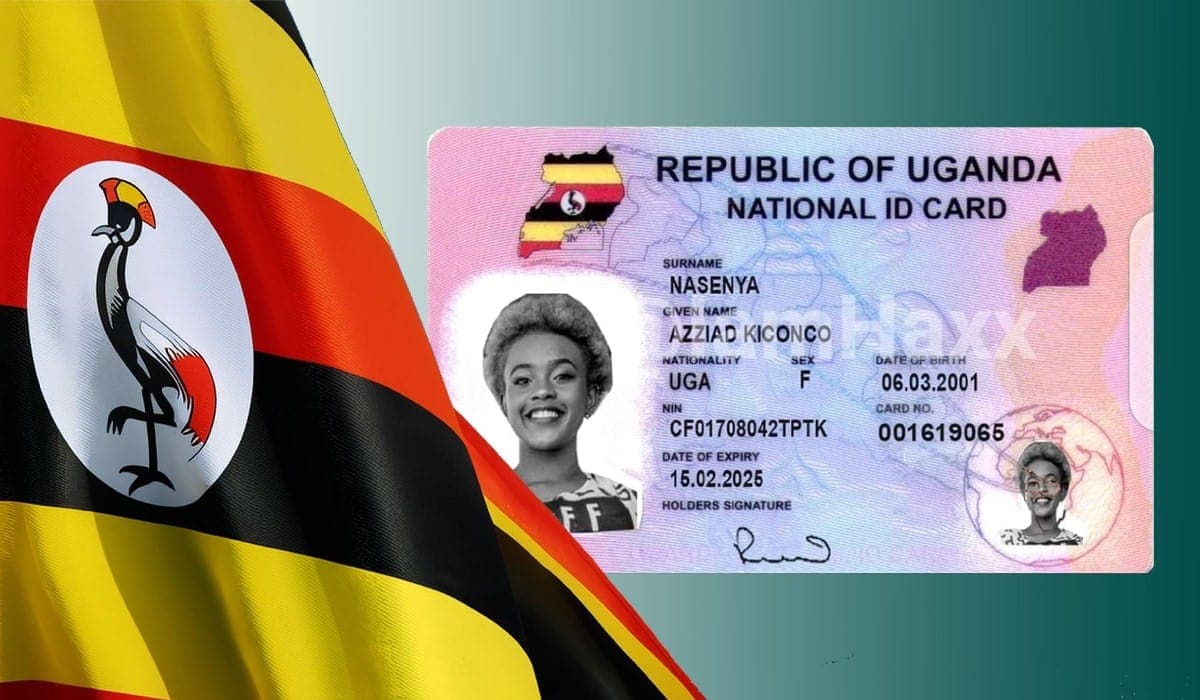Analysis
The Big ID Drive: Uganda Gears Up for Mass National Registration and Renewal
In a move poised to impact millions of lives, Uganda is set to embark on a comprehensive national identification card enrollment and renewal exercise commencing on May 27th. The ambitious undertaking, announced by Internal Affairs State Minister Gen. David Muhoozi, aims to register an estimated 17.2 million Ugandans who are yet to receive their national IDs and renew the credentials of another 15.8 million citizens whose current cards have expired.
Speaking to a throng of reporters in Kampala on Monday, Gen. Muhoozi revealed that the National Identification and Registration Authority (NIRA) has been meticulously preparing for this large-scale operation since its approval by the Cabinet in 2022. The initial postponement, he explained, was a strategic decision to ensure thorough planning and a seamless execution.
“Beginning May 27th, NIRA will mobilize and deploy staff at the parish level in all the 146 administrative units across this country,” Gen. Muhoozi declared, underscoring the widespread reach of the upcoming exercise. He further noted that a crucial pilot phase, focused on renewing the IDs of NIRA’s board of directors and the top management of the Internal Affairs Ministry, had been successfully completed, paving the way for the national rollout.
The logistical muscle behind this operation is significant. NIRA has acquired a substantial 5,665 biometric registration kits, which were delivered in January, demonstrating the commitment to capturing accurate and up-to-date data. This technological arsenal includes two high-capacity card printing machines boasting a combined daily output of 100,000 laser-engraved cards.
In a bid to enhance the security and efficiency of the national identification system, NIRA has partnered with Tahaluf Al Emarat Technical Solutions, a firm that has developed a new national security information system. Gen. Muhoozi highlighted the advanced features of this system, stating, “The new system provides for online pre-registration of biographical data. It will also capture the iris as an additional biometric feature,” marking a significant upgrade in identity verification capabilities.
Rosemary Kisembo, the Executive Director of NIRA, provided further reassurance regarding the financial backing of this critical national project. She confirmed that the government has released the entire budget of 666.85 billion shillings allocated for the exercise. This substantial sum covers various aspects, including 293 billion shillings for the new system, 183 billion shillings for the printing of 24 million cards, and 190.85 billion shillings dedicated to essential logistical services.
Kisembo emphasized the credibility and experience of the chosen contractor, stating that they “meet Ugandan standards and are involved in major projects across East Africa,” instilling confidence in their ability to deliver a robust and reliable system.
Recognizing the importance of early engagement, particularly with the younger generation, NIRA is actively conducting a national schools’ debate centered on the significance of National Identification Numbers (NINs). This initiative, currently underway at Kitante Hill School with the participation of over 10 schools nationwide, aims to sensitize students and encourage registration among minors. Kisembo stressed the importance of this outreach in fostering a culture of national identification from a young age.
For citizens seeking to renew their expired IDs, the process has been streamlined. Individuals will need to present either the original or a photocopy of their expired identification card. In cases where the ID has been lost, a valid police letter will suffice. Importantly, renewals will not involve any changes to personal details, and the existing national identification number will remain the same.
The requirements for new registrations, particularly for those under the age of 18, are clearly defined. Applicants will need to provide a photocopy of a parent’s national ID. Recognizing that parental IDs may not always be available, NIRA has provided alternative pathways. In such instances, applicants can present identification documents for one of their four grandparents or a blood relative who is a direct descendant of any of the four grandparents, ensuring that all eligible individuals can be registered.
Addressing the issue of lost and expired IDs, Gen. Muhoozi clarified the associated fees. Individuals seeking a replacement for a lost ID or renewing an expired one will be required to pay a fee of 50,000 shillings, payable exclusively at a bank, and provide a police letter in the case of a lost card. For those seeking to make changes to their original ID, a fee of 200,000 shillings will apply, and these applications will be processed solely at NIRA district offices, not at the parish-level registration points.
As Uganda prepares for this significant national exercise, the emphasis on thorough planning, technological upgrades, and widespread accessibility signals a strong commitment to ensuring that all citizens are equipped with this essential form of identification. The success of this mass registration and renewal drive will be crucial for national planning, security, and the individual empowerment of millions of Ugandans.
Comments



























